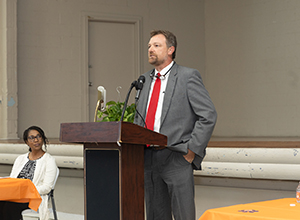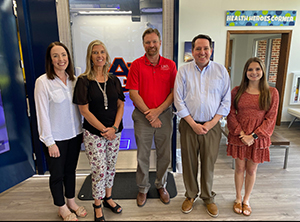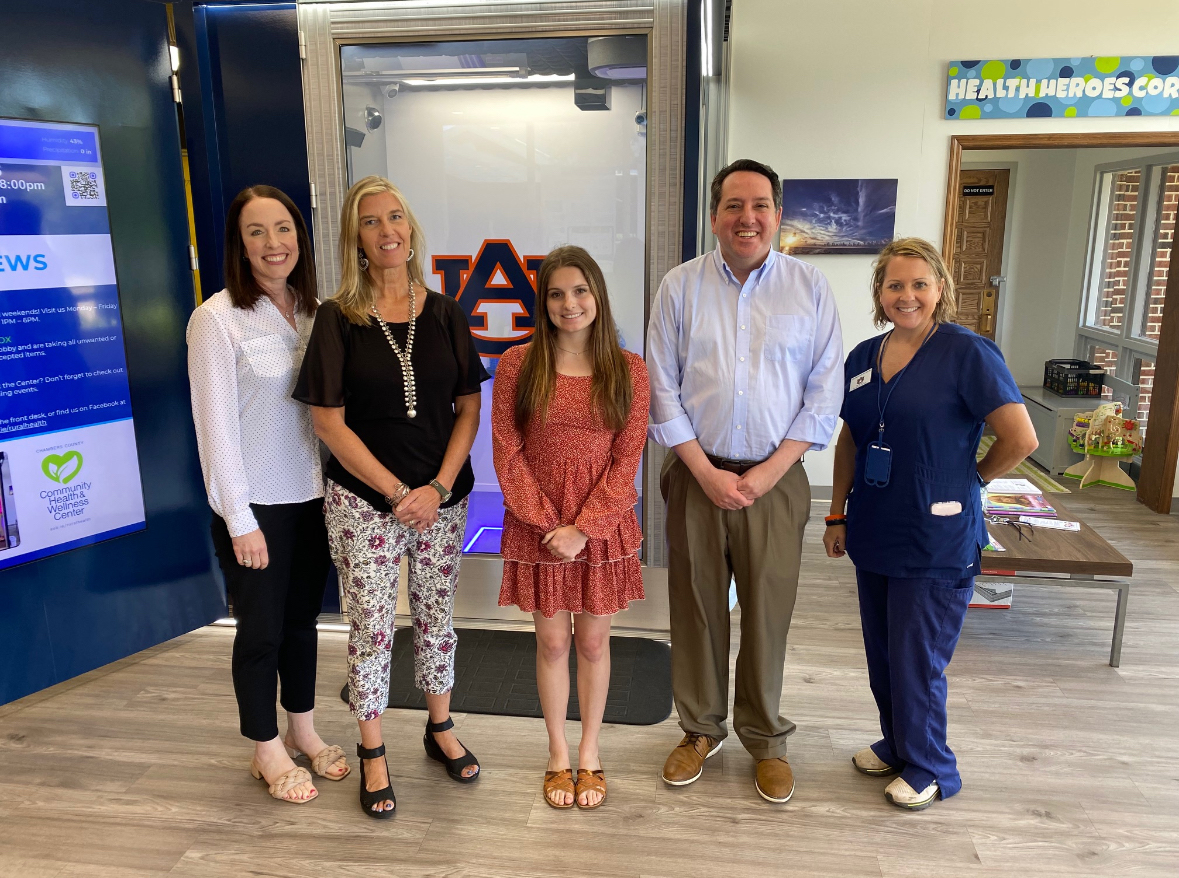Boosting Rural Healthcare: Auburn and UWA Partner to Enhance Care via Starlink
By: Mikailie Caulder

The Auburn University Rural Health Initiative has partnered with the University of West Alabama (UWA) in a shared mission to build a healthier Alabama. This collaboration developed naturally, thanks to the exquisite timing of two key individuals being in the right place at the right time. Rodney Granec, UWA’s Executive Director of Sponsored Programs, Research, and Outreach, recalls his first encounter with Hollie Cost, Auburn University’s Assistant Vice President for University Outreach and Public Service.
Cost had traveled to Sumter County to present the OnMed® Care Station technology, an innovative telehealth solution available to the Rural Health Initiative, to the County Commission. At the same meeting, UWA’s Connecting Minority Communities team was updating the commission on the progress of their grant. The synergy was immediate, Cost needed locations with internet access for placement of the OnMed® Care Stations, and Granec could offer both. This fortuitous meeting laid the foundation for a strong partnership.
UWA was awarded $1,649,440 for the Connecting Minority Communities (CMC) Grant Pilot Program from the US Department of Commerce’s National Telecommunications & Information Administration. Through the CMC grant, UWA is enhancing digital accessibility and literacy for students, faulty, staff, and key community partners, including municipal buildings and minority business enterprises (MBEs). This initiative provides digital equipment, Wi-Fi internet access (such as Starlink), and hosts digital literacy training events. To qualify for these services, communities must be within a 15-mile radius of Livingston’s census tract, including Sumter County towns such as Cuba, Emelle, Epes, Gainesville, Geiger, Panola and York, as well as Boligee in Greene County.
While the grant does not cover the cost of fiber installation, it bridges the digital divide by supplying internet access, equipment, and training, empowering local governments and residents with the tools needed for digital communication. The CMC grant also serves as a critical connector for rural communities with limited to no internet access, providing interim digital resources until fiber infrastructure is funded through other opportunities. Additionally, the CMC grant personnel act as the point of contact for Sumter County and internet service providers aiming to install fiber (both middle mile and last mile) for residents and businesses in Sumter and Greene Counties.

Through the partnership, Granec has been an influential leader in the installation process of the OnMed® Care Stations in Both Greene and Sumter Counties. Making suggestions for slight renovations to accommodate the booth along with the physical installation of the Starlink satellite and router. Without the help of UWA, the Auburn University Rural Health Initiative would not have been able to help these rural communities in need. These services hit home for Granec, stating “I live in Sumter County, and it is one the of the unhealthiest counties in the nation. Our university is trying to make a difference, but our resources are constrained. Working with the Rural Health Initiative allows us to make an impact despite our constrained resources.”
Additionally, Chris Theriot, UWA’s Director of Grants and Resource Development Liaison for the Office of Sponsored Programs, Research, and Outreach, has played an influential role in creating opportunities for UWA programs to get involved with the Rural Health Initiative. Through Theriot, nursing students at UWA have been given the opportunity to get hands-on experience in an atmosphere that they would not have been exposed to otherwise. These new Health and Wellness sites allow for nursing students to understand and be exposed to a variety of public health concerns associated with maintaining health in rural communities with limited healthcare access. Importantly, Dr. Linda Gibson-Young, Rural Health Initiative Health Services Director and Auburn University Nursing Outreach Coordinator has been facilitating this relationship.
Theriot also brings a different perspective to the Rural Health Initiative, hoping that these services will also uplift economic development in the community. He stated, “Studies have shown how communities that have individuals with poor health and medical outcomes affect the economic development of the community as a whole.” He continued by adding, “Health affects so many aspects of our lives that many communities don’t even realize.” Through the partnership with Auburn University Rural Health Initiative, Theriot hopes that the impact will begin to make a ripple effect in the community, not just from a financial standpoint, but also by catalyzing change in the face of success. Striving for policy advancements, medical and educational service development, and creating sustainable opportunities for underrepresented groups, this partnership aims to inspire long-term transformation in societal well-being and inclusivity. Dr. Cost, who directs Auburn University’s Rural Health initiative states “I’m incredibly optimistic about how this partnership, based on a true passion for our neighbors will amplify our impact and outcomes on the health of our communities.”
Auburn University Outreach and Alabama Cooperative Extension System are addressing significant health disparities across rural Alabama in partnership with the Colleges of Pharmacy, Nursing, Human Sciences, the Speech, Language, and Hearing Sciences program, and with full engagement of the communities involved. UWA is an invaluable partner in this region of the state.

Last Updated: December 5, 2024
